Numerous instances have been reported where women have been denied termination of pregnancy services for pregnancies arising out of rape, incest and sexual violence. There is also the rising issue of women and girls being forced by the police to keep the pregnancy in cases of incest or rape to preserve the infant to be used to retrieve DNA for evidence while prosecuting the perpetrator.
During last year’s national exams, media reported alarming cases of girls who sat the papers in delivery rooms or went into labour in the exam room. These statistics show the need for urgent action and awareness to enable the youth to manage their own sexual and reproductive health. Estimates from developing countries indicate that pregnancy and delivery complications, including unsafe abortions, are the second leading causes of death for girls below 20 years.
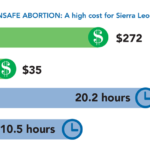
This fact sheet describes the impact of unsafe abortion in Sierra Leone as evidenced by three studies.
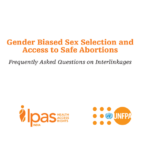
This is an advocacy tool for implementing authorities, service providers and NGOs on safe abortion and sex selection.
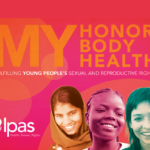
This booklet describes Ipas’s work with youth to promote their sexual and reproductive health and rights. With facts and concise explanations—plus illustrative stories from Nepal, South Africa and Ecuador—the booklet highlights the challenges young people face and the opportunities for them to become leaders and work with adults to design policies and health services that are youth appropriate.
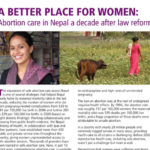
This publication highlights the work in Nepal since legal reform a decade ago and puts a spotlight on the key ingredients for successful scale-up of abortion care, including partnerships with government and NGOs and integration of abortion within the country’s Safe Motherhood program.
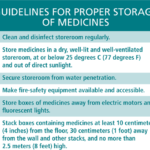
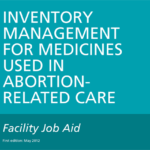
This 12-page job aid supports efficient inventory management of misoprostol (and mifepristone, depending on the setting) and other maternal-health medicines. It defines sound inventory management practices that can help reduce stock-outs and oversupply situations, and is for use by staff in public health facilities, nongovernmental organizations (civil society organizations) and private for-profit clinics and hospitals.
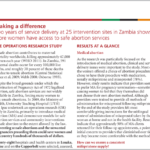
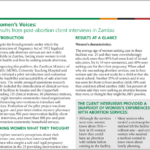
This is a fact sheet highlighting women’s perspectives on abortion care as part of operations research in Zambia.
Ipas works around the world every day to strengthen girls’ voices and their ability to choose the path that’s right for them.
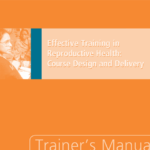
This trainer’s manual is intended for use in training-of-trainers courses, along with its companion document, Effective training in reproductive health: Course design and delivery – Reference manual. The trainer’s manual comes with a CD-ROM that includes PowerPoint® presentations and additional exercises for the trainer.
This guide focuses on ways to plan, implement, use and finalize an assessment of how young women and their communities relate to abortion, through locally relevant, community and/or youth-led processes. It is designed to gain insights into the local context surrounding abortion care for young women to inform program design and to support meaningful youth participation in project design. It is a global resource for community groups, youth groups, peer educators, trainers, administrators, program managers and technical advisors of abortion care programs.
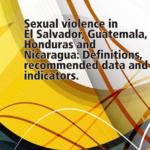
Sexual violence can have devastating effects on individuals, families, communities and societies. The findings from the study presented in this report are part of a regional collaboration in Central America to prevent sexual violence and to ensure that victims and survivors have access to all the services provided by the health and justice systems that they may need.
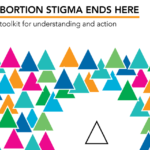
Abortion stigma plays a critical role in the social, medical and legal marginalization of abortion care around the world—and it leads to negative health outcomes for women, girls, trans people and our communities. It drives the high number of preventable deaths and injuries around the world due to unsafe abortion.
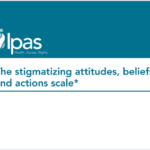

This booklet describes Ipas’s work with youth to promote their sexual and reproductive health and rights. With facts and concise explanations—plus illustrative stories from Nepal, South Africa and Ecuador—the booklet highlights the challenges young people face and the opportunities for them to become leaders and work with adults to design policies and health services that are youth appropriate.
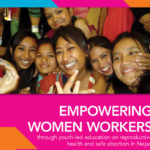
From 2011-2012, Ipas and our partners implemented a series of classes on sexual and reproductive health and rights (SRHR)—including information on safe abortion—for women who work at factories across Nepal’s Kathmandu Valley. This report explains how our project increased women workers’ knowledge of SRHR topics so they can better manage their own health and relationships and serve as resources for their families and communities. The report includes background information on Ipas’s work with youth, the context of sexual and reproductive health services for women workers in the Kathmandu Valley, details on the project’s various components, and explanation of key outcomes.

